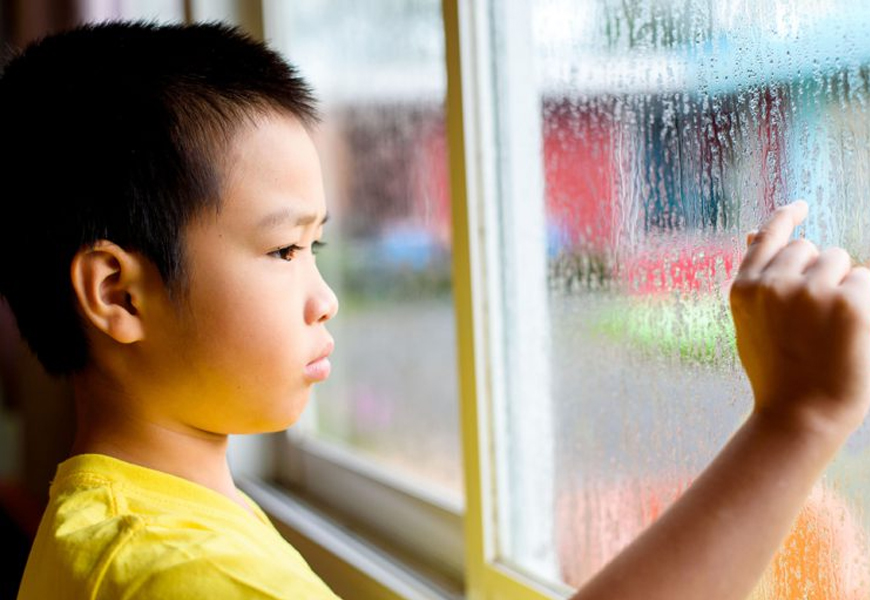I wouldn’t expect that my kids would still be grieving my divorce, three years after the fact, but it seems like on any given day, they experience any of the following feelings: denial, anger, bargaining, depression and acceptance.
According to the experts, none of this is a surprise. “It’s common for kids to go back and forward, to jump through stages, before they get to the place of acceptance,” my workshop leader told us during a session I attended through Family Service Toronto about how to help your children cope with divorce.
Of course, how a child reacts depends on their age. From zero to three, common responses to parental divorce include disruption in sleeping or eating patterns, irritability with normal separations, intense and frequent temper tantrums and fear of abandonment, to name a few. Preschoolers may be clingy, have an intense yearning for the absent parent, be irritable and demanding or be preoccupied with the idea of being abandoned by one or both parents. As they get older, some of these symptoms may intensify, but they may also have difficulties in school, be visibly sad, or have general anxiety. We were provided with an entire list outlining issues at all the ages through to adolescence.
I’ve been through the gamut with my kids. I’ve seen them go from being visibly sad to worrying about being abandoned to trying to get us back together. I’ve often been shaken by their emotions. I wish I could wipe away their fears; give them an even playing field, emotionally, as kids with intact families.
But there are ways parents can help. I don’t want to simply reiterate the handouts from the workshop, but a few things stood out.
To help with separation anxiety and fears of abandonment:
Offer frequent reassurance, be reliable, provide access to both parents and acknowledge the feelings behind the behaviours.
To address fantasies of reconciliation:
Be clear that the separation is final and that nothing the child can do will change the situation, explain that it’s an adult decision and it’s never the child’s fault.
To help the cope with feelings of sadness, which are inevitable, may go on for years and are natural:
Don’t ignore, deny, invalidate the feelings or denigrate the child. Do acknowledge the feelings, accept, validate and comfort the child with affection and understanding.
I’ve always tried to maintain an open dialogue with my kids. I’ve told them my divorce is not their fault. I’ve expressed that it’s final. I comfort them when they are sad. But now I can understand that these feelings will continue, possibly for years, and that my kids will need constant validation and reassurance.
If you’re separated or divorced with kids and don’t know how to help, consider joining a support group, signing up for a course, or speaking with an expert. It’s so easy to feel alone or to feel nobody else understands, but that just isn’t true.
I can’t put together an exhaustive list of resources, but I would like to mention three I’ve heard of recently that can make a difference. Go online and Google courses, speak with friends, and get help if you or your kids are struggling. I promise it’s worth the effort.
Family Service Toronto, through its Families in Transition umbrella, provides specialized services for separating, divorcing and blended families. They help parents and kids cope with parental conflict, improving relationships, helping children adjust to loss, and forming successful blended families. 416-595-9618.
Rebuilding when your Relationship Ends: A 10-part seminar series based on the “building blocks” in the book, it focuses on building a support network with the other participants in the course, as well as identifying the steps to move forward.
Brandie Weikle is an outspoken authority on issues related to co-parenting and peaceful divorce. She has a website, thenewfamily.com, a podcast, and is now offering divorce coaching to those going through the process. She also moderates a private Facebook community called Positive Co-Parenting After Divorce. a http://thenewfamily.com/divorce-help/

Leave a Reply